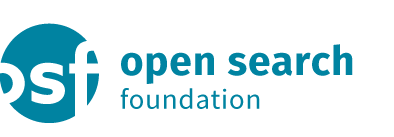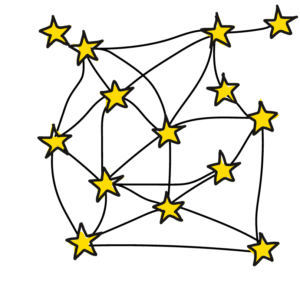„Children are key multipliers when it comes to changing generational thinking“
Interview with Prof. Dr. Melanie Platz. She is a professor at Saarland University and co-project leader of the OSF Education+Literacy specialist group.
Interview: Susanne Vieser
Information about a book, plants, or the history of the region in which they live: Even in elementary school, children search for information on the Internet. However, they usually learn nothing about how search engines work, and especially nothing about the way their operating companies work. In class, they seldom learn to question whether all the tips are really correct and how information sources should be judged.
If Melanie Platz has her way, this has to change as soon as possible: “Children today grow up with search engines. They can and want to understand how they work,” notes Melanie Platz, who holds a doctorate in mathematics and learning science, and: “Children play a central role here as multipliers when it comes to changing the thinking and decision-making of generations.” Platz teaches at Saarland University in Saarbrücken, Germany, and works with the Open Search Foundation (OSF) to promote practical applications of open search, teaching and training concepts.
Should there be a school subject on Internet search?
Prof. Dr. Melanie Platz: Even though the idea of a separate school subject is appealing, I don’t see any chance of implementing it at present, especially because of the structures that prevail in our school system. Nevertheless, the topic of Internet search should take on a more central role and – especially in elementary school – be linked to familiar content. How algorithms sort, for example, could be explained with the help of the assignment of geometric figures. Even elementary school children are now expected to conduct Internet-based searches. They use search engines for this purpose without knowing or questioning how they work.
In general, obtaining information on the Internet and using it for all aspects of learning is one of the most common activities of students. Even teachers often do not know how search engines work and what consequences this has on our privacy, for example. Therefore, interdisciplinary teaching and training concepts need to be developed that enable teachers and students to build search engine literacy or search engine and information literacy in the context of familiar content.
What should everyone know about searching the Internet?
Platz: That search is never objective, that it collects personal data and information about Internet use, and that the choice of search engine plays an important role.
Can you recommend a search engine for children to parents or other educators?
Platz: I can recommend three children’s sites and search engines: Blinde-Kuh.de, Fragfinn.de and helles-koepfchen.de.
What learning contents are important to you?
Platz: Even children should be taught how a search engine works. Even at elementary school age, they need to know how to search for information correctly, how to evaluate results, and what risks can arise from disclosing personal data.
Have you already been able to convince schools and teachers about the topic of search?
Platz: We are currently developing learning environments on the topic of search engine literacy with students and testing them with pupils in order to raise awareness of the topic during teacher training and to inspire future teachers with enthusiasm for the topic so that they can hopefully teach it later in everyday school life. We are also planning further training on the topic for teachers.
How did you come to OSF as a didactician?
Platz: My doctoral advisor, Prof. Dr. Engelbert Niehaus, brought the Open Search Foundation to my attention. Since I have always been involved with open source, open content and open educational resources in my work, I found the idea of open, transparent search interesting. Through research for a paper at the Open Search Symposium 2020, I also became aware of its didactic significance.
Children today grow up with search engines, they can and want to understand how they work. It is important to support them in this, i.e. to teach them the dangers, but also the potential, that influence their own behavior and actions. Children play a central role as multipliers when it comes to changing generational thinking and decision-making.
Why are you involved with OSF?
Platz: Because of the relevance of the topic, the idea of an open, transparent search and, above all, because of the great team.
Dare to look into the future – what would you like to have achieved in terms of search in five years?
Platz: I hope that by then I will have helped to create awareness for the topic of search. In addition, we want to have high-quality teaching modules that can actually be used to anchor the topic in elementary schools in the long term.
Melanie Platz
Professor at Saarland University, Co-Projektlead of the osf working group Education+Literacy


